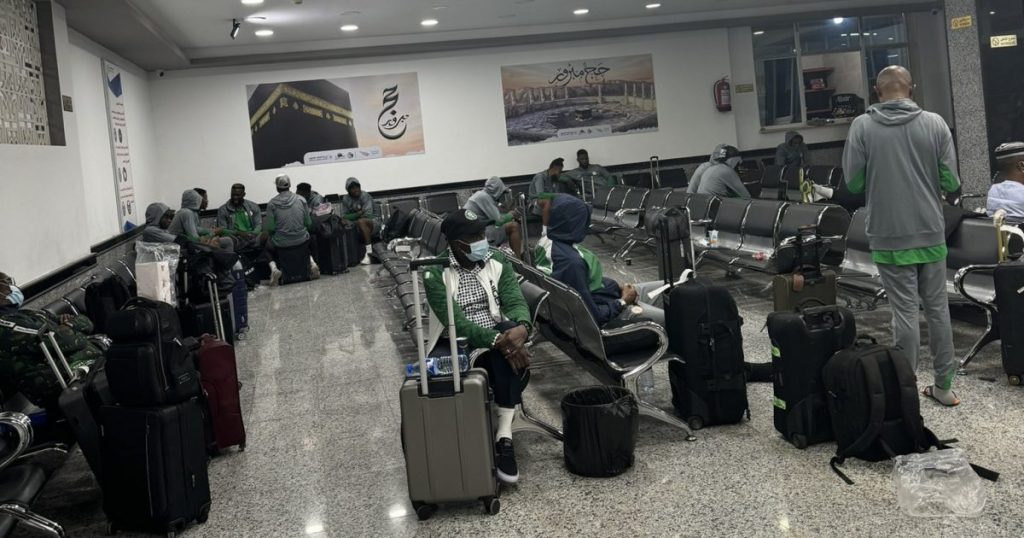The Nigerian Super Eagles have faced a frustrating ordeal at Al Abraq International Airport in Libya, as they have remained stranded for over 12 hours. The team was en route to Benghazi for their Africa Cup of Nations qualifier against Libya when their chartered aircraft was unexpectedly diverted to Al Abraq Airport. This unexpected turn of events has left the Nigerian contingent waiting without much support or clarity from the Confederation of African Football (CAF). As of the latest updates, the governing body for African football has not issued any statements regarding the situation, nor has it condemned the actions of the Libyan authorities or provided further details about the circumstances surrounding the team’s predicament.
The Nigerian government is aware of the situation and is actively working on it. According to the Minister of Foreign Affairs, Yusuf Tuggar, the government is in contact with the Nigerian mission in Libya to ascertain the status of the Super Eagles. However, the delay in addressing this issue has led to heightened frustration among the players and fans alike. As the hours have passed without resolution, it has become increasingly clear that the Nigeria Football Federation (NFF) has decided to withdraw the Super Eagles from the qualifier match against Libya amid concerns over their safety and well-being.
The turmoil began as the ValueJet aircraft was approaching Benghazi Airport when it was abruptly redirected to Al Abraq, more than a two-hour drive from where they were supposed to land. This mysterious diversion raised safety concerns and generated criticism regarding the treatment of the Super Eagles, who were described as being held “hostage” at the airport. Players have shared distressing updates on social media, highlighting the dire situation they find themselves in, including lack of food, water, and internet access, which adds to the pressure of preparing for a critical match.
Super Eagles goalkeeper Stanley Nwabali expressed his exasperation with the situation on X, lamenting the lack of basic amenities during their prolonged wait. Similarly, teammate Victor Boniface voiced his concerns about the conditions faced by the team, emphasizing the need for better support for African footballers. Social media users have taken up their cause, calling out CAF for their inaction and demanding immediate intervention to ensure the players’ safety and well-being during this unprecedented crisis.
The negative sentiments towards CAF and the Libyan authorities have been echoed by numerous users online, with many frustrated fans drawing attention to past incidents involving African teams in Libya. Some users urged CAF to take decisive measures, whether through intervention or rescheduling the match at a neutral venue, as the players’ safety remains the utmost priority. Many believe the NFF made the right decision in opting to prioritize the well-being of the players over the bureaucratic football match schedule.
As the situation unfolds, the fallout from this incident may have broader implications for the perception of football operations in Libya and the role of CAF in ensuring the safety and proper treatment of athletes. The stranded Super Eagles serve as a critical reminder of the challenges faced by football in Africa, from logistical issues to the need for heightened oversight and support from governing bodies. As the football community waits for a resolution, the need for accountability and a structured response to such crises becomes painfully clear.














